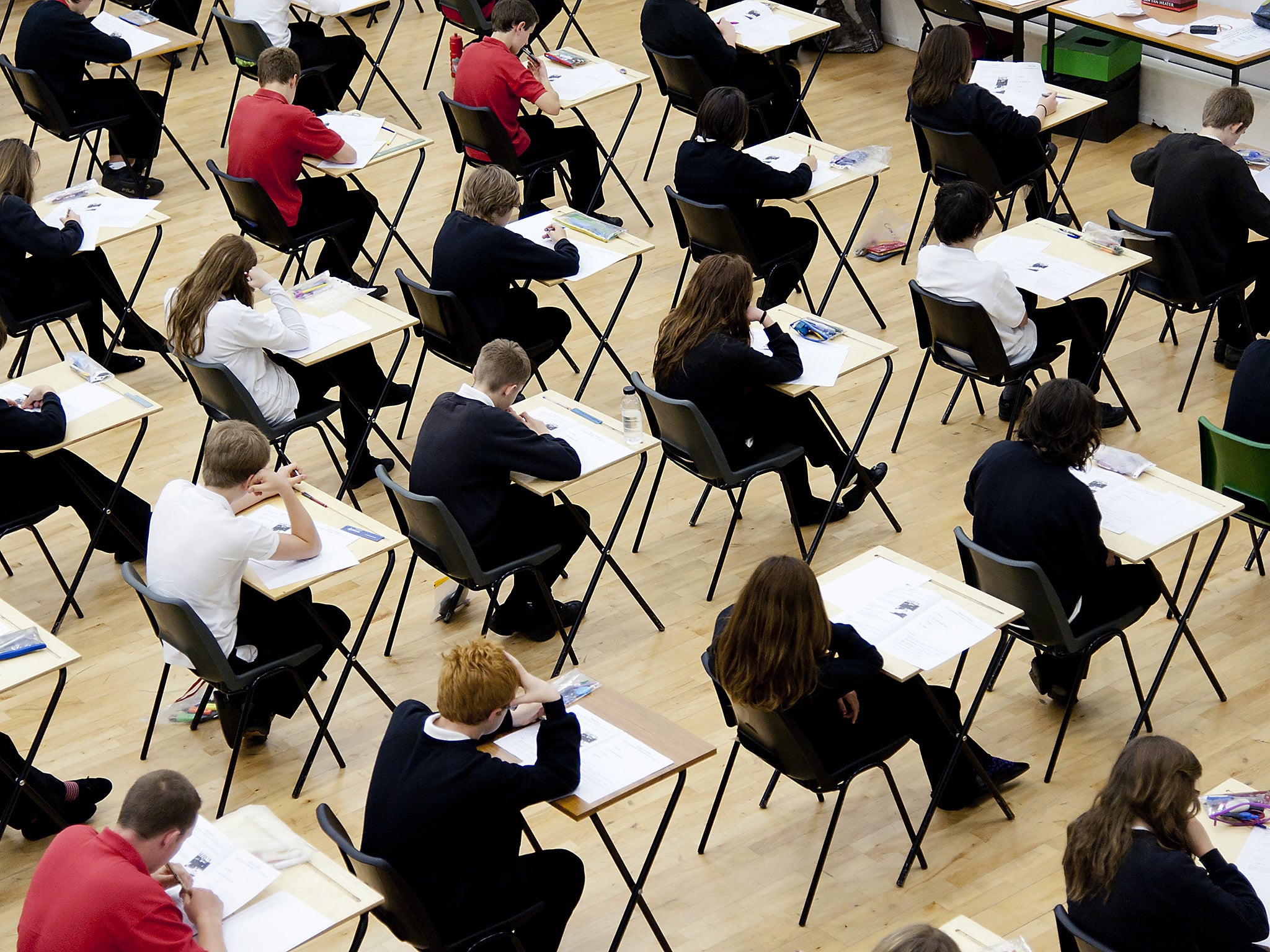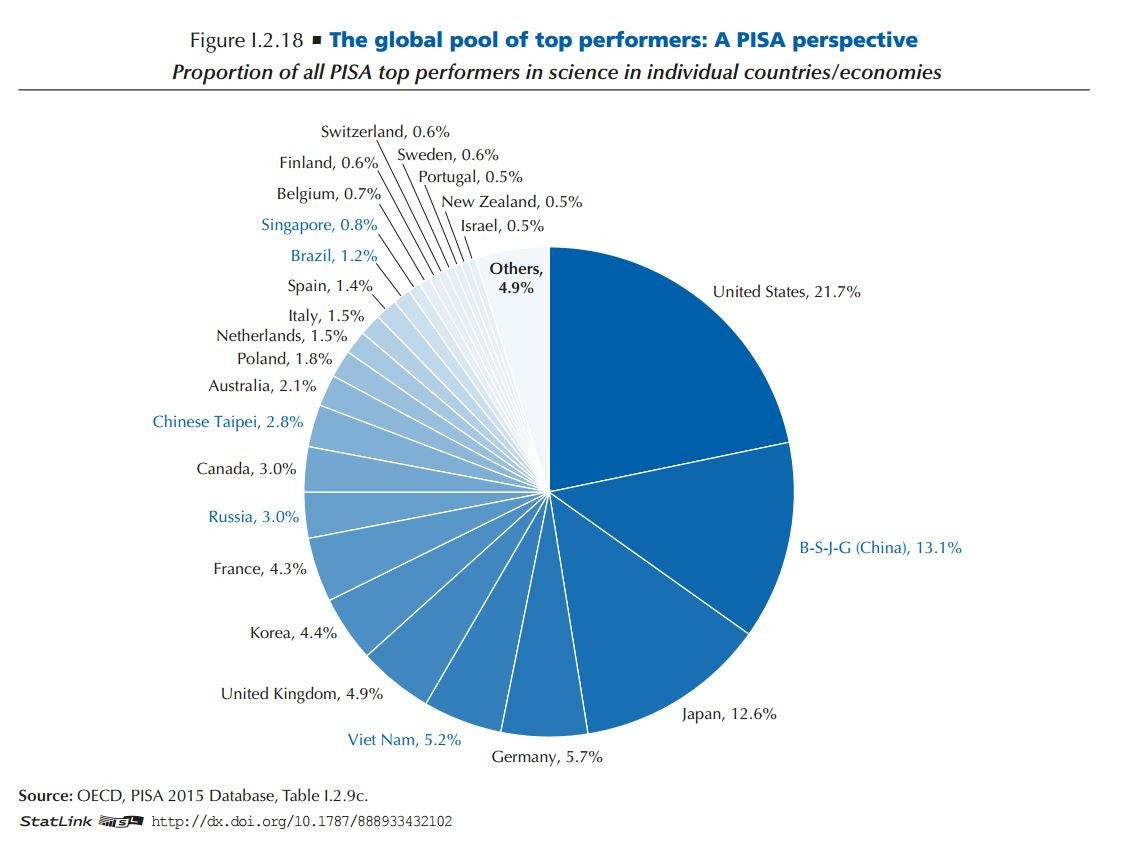UK schools falling behind leading countries, new global rankings reveal
Scotland and Wales fared particlarly poorly in maths, sciences and literacy skills in the latest international school performance rankings

Your support helps us to tell the story
From reproductive rights to climate change to Big Tech, The Independent is on the ground when the story is developing. Whether it's investigating the financials of Elon Musk's pro-Trump PAC or producing our latest documentary, 'The A Word', which shines a light on the American women fighting for reproductive rights, we know how important it is to parse out the facts from the messaging.
At such a critical moment in US history, we need reporters on the ground. Your donation allows us to keep sending journalists to speak to both sides of the story.
The Independent is trusted by Americans across the entire political spectrum. And unlike many other quality news outlets, we choose not to lock Americans out of our reporting and analysis with paywalls. We believe quality journalism should be available to everyone, paid for by those who can afford it.
Your support makes all the difference.British schools are falling behind leading countries in terms of performance, new global rankings have revealed, prompting fresh concerns from academic leaders over “government failings” in education.
The Programme for International Assessment (Pisa) league tables are published every three years by the OECD and charts educational standards across the developed world.
Of 72 participating countries, the UK has been ranked in 15th place for performance in science, reading and mathematics overall – beating other consistent performers Germany, the Netherlands and Switzerland.
The UK also jumped ahead in mean Science results – up to 15th place from 21st in 2012. This is the highest position the country has held since 2006, despite test scores declining overall.
Experts have called the results disappointing, however, with little to no progress on results published three years ago, despite government efforts to improve school performances in sciences and maths.
When broken down by devolved UK education system, Wales scored particularly poorly, with the lowest results shown in every subject. Wales was the area of the UK to fall below the OECD average for Science.
Overall, Scotland fell from 11th to 23rd place for reading, from 11th to 24th place for maths and 10th to 19th place for Science since the 2006 results.The Scottish government has also been criticised following the Pisa results, after Scotland recorded its worst ever performance.
In maths, the UK is ranked in 27th place overall, slipping from 26th place three years ago, and the lowest rankings since the country first took part in Pisa in 2000.
The OECD's education director, Andreas Schleicher, describes the UK's results as “flat in a changing world”.According to the tables, reading proficiency among UK pupils has improved slightly, coming in 22nd place globally, up from 23rd.
Russell Hobby, leader of the National Association of Head Teachers, warned that the results showed “a lost decade” in which the government had pursued an “obsession” with structural change which had “little impact on either standards or equity”.
Students in Singapore came top in every subject table this year, overtaking 2012’s leading economy, Shanghai, and beating other top performers Hong Kong and Taiwan.
The Pisa test is designed by education experts around the world and is used to determine whether students can apply what they have learnt in school to real life situations.
It mainly covers science, reading and mathematics, with practical questions on financial problem solving and literacy.
Over half a million students took place in the most recent tests, representing 28 million 15-year-olds in 72 countries and economies.
Students who participate are randomly chosen from all the 15-year-olds enrolled in grade 7 or higher in selected schools. They are asked to interpret texts, solve maths problems or explain a scientific concept using their logic and reasoning skills.
Their scores count towards a national mean score which can be compared between participating countries.
Commenting on the newsly published 2015 results, Kevin Courtney, General Secretary at the National Union of Teachers (NUT), noted that the highest performing education systems shown in the rankings were non-selective, suggesting Theresa May’s plans to expand on UK grammar schools could further hinder Britain’s results.
He said: “Countries cited as performing well on the Pisa tests or which have shown recent improvement, including Germany and Poland, are currently moving away from selective education. Likewise in Singapore, much heralded for the high achievement of its pupils in maths, children are generally not split into different ability groups.

“The Westminster Government needs to take note of this and recognise that in England, its policies are heading in the wrong direction.
He added: “There are worryingly familiar signs that the Government is failing in one of its key responsibilities – to ensure that there are enough teachers in the system."
Responding to the results, Department for Education officials announced an extra £12m in funding to support the teaching of science in schools.
School Standards Minister Nick Gibb said: “We want to make this a country that works for everyone, not just the privileged few, and education is at the heart of that ambition.
“Today’s findings provide a useful insight as we consider how to harness the expertise of selective schools in this country in the future.
We know that grammar schools provide a good education for their disadvantaged pupils, which is why we want more pupils from lower income backgrounds to benefit from that.”
Join our commenting forum
Join thought-provoking conversations, follow other Independent readers and see their replies
Comments